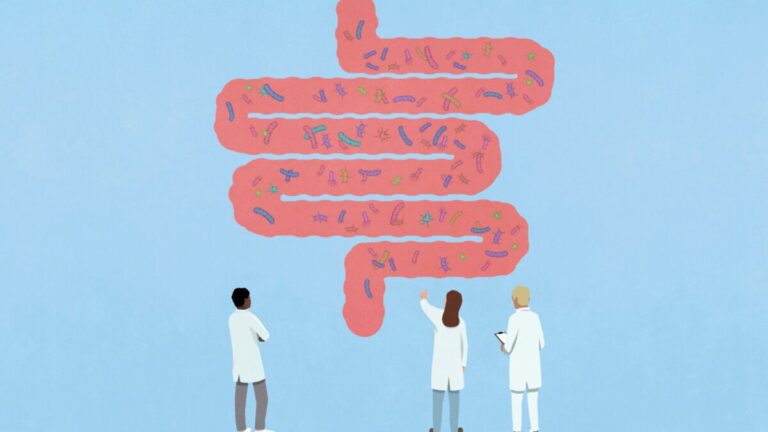Fecal transplants have emerged as a potential treatment for a wide range of conditions, together with irritable bowel syndrome, diabetes, and even despair. These so-called poop transplants have understandably acquired numerous consideration, however new analysis casts a little bit of a moist blanket over the apply.
The process entails taking microbes from the poop of a wholesome individual and transferring them into a patient’s colon. This could restore stability to their intestine microbiome, however in line with a research printed June 6 within the journal Cell, transplanted microbes might colonize the incorrect elements of the digestive system. This may end up in long-lasting unintended health consequences, the researchers warn.
“I believe it’s a little bit of a wakeup name to the sector that perhaps we shouldn’t willy-nilly put massive bowel microbes into totally different elements of the gut that shouldn’t be there,” said lead writer Orlando “Landon” DeLeon, a postdoctoral researcher on the College of Chicago, in a press release.
DeLeon led a group of researchers by a sequence of experiments on mice to find out how fecal matter transplants have an effect on totally different elements of the gut. The mice had been separated into three teams. One acquired microbes from the jejunum (the center a part of the small gut), the second acquired microbes from the cecum (a pouch that connects the small gut to the colon), and the third acquired a regular fecal transplant from the colon.
Every a part of the digestive system comprises uniquely tailored microbiota. The researchers needed to see if the microbes would stick with their respective niches as soon as contained in the mice. Actually, they discovered that every of the transplants efficiently colonized the complete intestinal tract, creating regional intestine “mismatches” that lasted for as much as three months after the process.
Microbes that colonized elements of the intestine the place they didn’t belong triggered metabolic adjustments in these intestinal areas, with the potential to have an effect on a affected person’s well being and habits. The researchers noticed adjustments within the mice’s consuming habits, exercise, and vitality expenditure following the transplants. In addition they documented adjustments in gene exercise related to immune operate, which in flip led to adjustments in liver metabolism. Most shocking was the style through which these international microbes altered gene and protein expression within the intestinal lining to make the mismatched intestine area extra appropriate for them.
“It’s like they’re engineering or terraforming their environments to assist them slot in,” DeLeon stated.
To find out whether or not these mismatches may happen in precise fecal transplant sufferers, he and his colleagues carried out further checks utilizing human tissue samples. Outcomes confirmed that transplanted intestine micro organism can colonize elements of the human digestive system the place they don’t naturally belong.
“If we’re designing good therapeutics, we must always pay attention to the significance of matching the regional microbiota to their correct environments, in order that we offer higher total well being advantages,” DeLeon stated. For instance, the findings counsel it could be safer to make use of microbes retrieved from all of the elements of the digestive system, in line with the researchers.
The Meals and Drug Administration (FDA) solely recommends fecal transplants for treating repeated infections of Clostridium difficile, or C. diff. This bacterium—which might trigger extreme gastrointestinal signs—mostly sickens hospital sufferers who’ve been handled with antibiotics. Fecal transplants have proven to be extremely efficient for treating these infections, and people outcomes have inspired researchers to analyze different purposes for this process.
A wave of recent analysis means that fecal transplants may deal with situations that transcend the intestine. Certainly, research have discovered that this process may gain advantage sufferers with neurodevelopmental and psychiatric disorders, multiple sclerosis, kind 2 diabetes, and extra.
DeLeon’s findings counsel that medical doctors want to higher perceive the dangers of fecal matter transplants earlier than this remedy can be utilized for ailments apart from C. diff. He plans to maintain investigating how totally different microbes have an effect on every a part of the gut and discover methods to revive altered areas to their authentic state.
This research exhibits that in terms of intestine microbes, location actually issues. Getting the correct bugs in the correct place may unlock the complete potential of fecal transplants.

